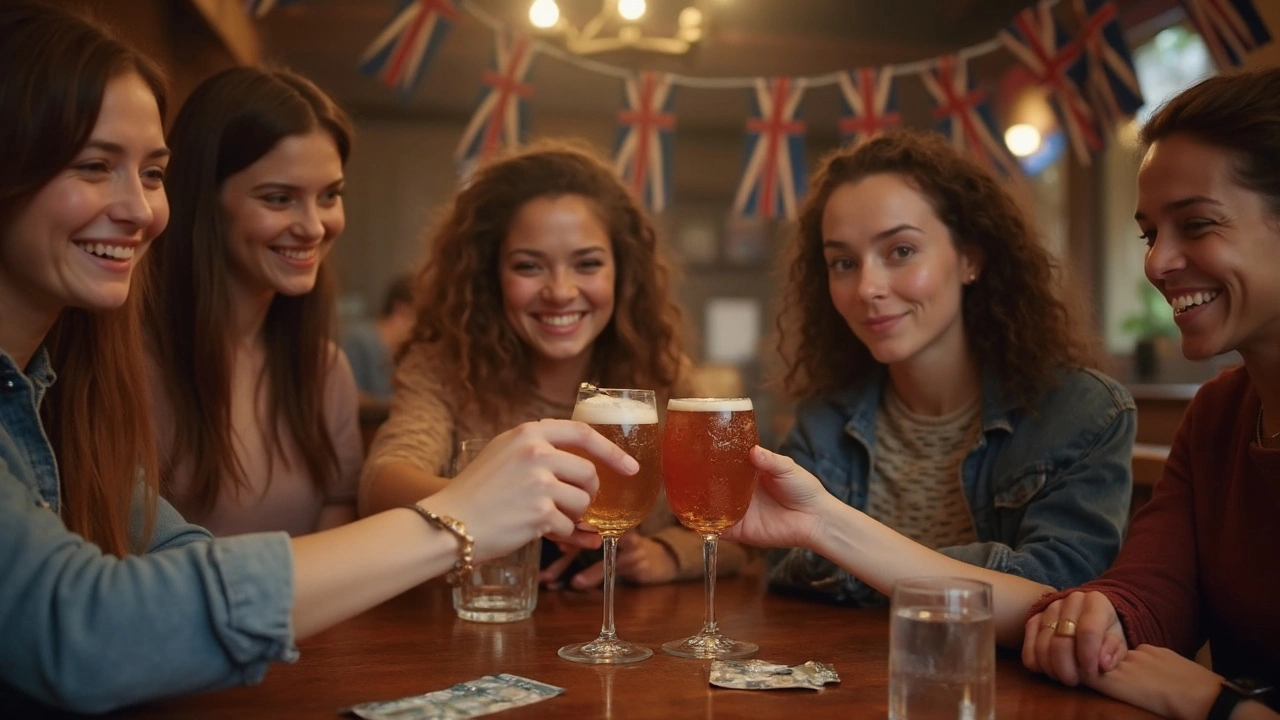If your night out plans just crashed into the brick wall of a new prescription, you’re not alone. Picture this: it’s happy hour at your favorite pub. Your mates are ordering pints, but you’re staring down at your water, thinking, “Can you drink on spironolactone, or does that equal certain doom?” It’s not just you—Google search history proves it. Nobody wants to be stuck sipping flat soda while everyone else enjoys a cold one. At the same time, nobody wants to play a real-life game of health roulette. Let’s break down what you can (and probably shouldn’t) do when alcohol and spironolactone cross paths.
Why Mixing Alcohol and Spironolactone Has Everyone Guessing
First up: what’s the fuss about spironolactone and alcohol, anyway? Spironolactone may seem harmless—it’s prescribed for acne, high blood pressure, heart failure, hormone stuff, and a heap of other causes. But this tablet has a long list of quirks. It’s technically a diuretic, which means it encourages your kidneys to dump salt and water out of your body. You lose more fluids, and whether you notice it or not, your blood pressure may drop a little.
Enter alcohol. Most of us already know how booze makes you run to the bathroom more—yep, alcohol is also a diuretic. Pair it with spironolactone and your body can lose more fluid than expected. That’s why dehydration tops the list of spironolactone and alcohol combo problems. Ever been hit by dizzy spells or that pounding headache from too little water? That’s one risk. Nurses at Sydney’s Royal North Shore often warn patients about this effect, saying spironolactone already makes you lightheaded if you stand up too fast, especially in hot weather. Alcohol just makes it worse.
But dehydration and feeling woozy aren’t the only trouble. There’s also the salt and potassium equation. Spironolactone helps your body hold onto potassium, an essential mineral. Too much potassium, though, can short-circuit your heart’s natural rhythm. If you drink, get dehydrated, skip meals, or take other meds that raise potassium, it’s easy for those levels to go sideways. Doctors recommend keeping an eye out for muscle cramps, strange heartbeat, or weakness. (If you already have kidney issues, this gets even more real—one weekend of heavy drinking and spironolactone could actually trigger a medical emergency.)
The weirdest part? There’s no “universal danger” number. You won’t find a single rule for how much alcohol is definitely safe or unsafe with this drug. It depends on how much you weigh, how healthy your kidneys are, what else you’re taking, whether you’ve had food, how fast you usually metabolize drinks—all the messy stuff that makes medicine more art than science.
One study out of Melbourne looked at women ages 20 to 30 taking spironolactone for hormonal acne. Around 60% said they drank socially. Among those, only a handful noticed worse side effects—but all the ones who got sick drank more than four drinks in a night. That might sound reassuring, but there’s a catch. Subtle problems (like headaches or tiredness) usually went unreported, and doctors suspect people are less likely to admit exactly how much they drink. So official “safe limits” are mostly guesswork, based on side effects people actually mention.

Doctor Q&A: Handling Real-Life Drinking Situations on Spironolactone
Too many health sites crush you with doom and gloom or behave like you’re planning a wild bender. Let’s talk about actual drinking scenarios and what your GP might say about the risks.
- I just started spironolactone. Is it okay to have a glass of wine tonight? Most GPs recommend giving your body a week or two to adjust before mixing in alcohol. The first days are when low blood pressure and dizziness strike, so take it easy. Aim for water or a zero-alcohol beer till you know how the pill affects you.
- Is it true I’ll get drunk faster on spironolactone? Not technically, but it can feel that way. You’ll probably lose more fluid and get dehydrated quicker, which can make hangovers brutal and increase those “off-balance” vibes. Also, people on this med sometimes feel sleepy or out of sorts already—a couple of drinks can ramp that up fast.
- So, what’s the ‘safe’ amount to drink? There’s no magic number, but Sydney’s St Vincent’s GP clinics generally suggest keeping it to 1-2 standard drinks per night, max, with plenty of water between. If you notice headaches, nausea, or your heart pounding, that’s your cue to stop.
- I drink socially but not every weekend. Do I need to quit completely? Not unless your GP tells you to—for most people, the occasional beer or glass of prosecco is fine, as long as you’re healthy and checking in with your doc. But stay alert to weird symptoms. And if you have heart, liver, or kidney issues, or a history of dehydration, you may need to avoid alcohol altogether.
- Can alcohol make the side effects worse? Yep, and sometimes it’s more than just feeling tired or wobbly. The combined diuretic effect can bring on headaches, muscle twitches, and even random fainting. A few folks experience increased breast tenderness (spironolactone side effect!) or find their skin breaks out again if their liver gets overloaded.
- My bloodwork was a bit weird last time. Should I risk it? Probably not. If your potassium is borderline high, or kidney markers are up, your doctor will likely tell you to ditch alcohol while on spironolactone. Extra stress on your kidneys isn’t worth it for a couple of drinks.
Doctors sometimes sound cautious or even wishy-washy, but it’s for good reason. The number of variables is off the charts. Still, being honest—with your doctor and yourself—pays off. No one’s mission is to ban you from Friday nights out, but your GP would rather see you at brunch than the ER.
If you want more nitty-gritty details, check out this guide on can you drink on spironolactone for extra doctor commentary and tips. It’s a solid read before making any plans.

Tips for Staying Safe and Enjoying Social Life While on Spironolactone
Let’s be honest—nobody wants to miss out on the fun. Good news: there are ways to manage your spironolactone prescription without becoming the party pooper. Here’s how people in Sydney and beyond are handling it:
- Space out your drinks: Stick to one or two, at least at first, and wait an hour or more between each. This gives your body time to catch up.
- Alternate with water: ‘One for one’ is your new rule. After every alcoholic drink, down a glass of water. It keeps dehydration at bay and helps you gauge how you feel.
- Avoid salty snacks: Pub chips or loaded fries? Maybe not your best friends. Spironolactone messes with your body’s salt balance, so dumping in more salt can tip the scale and make you thirstier and more dehydrated.
- Plan your nights: If you know you’ll be drinking, eat something beforehand. Avoid drinking on an empty stomach, since that spikes your blood alcohol and can drop your blood pressure fast.
- Watch for warning signs: Keep an eye out for muscle cramps, dizziness, racing heart, or nausea. If these show up—especially after a second or third drink—stop drinking and grab some water. Don’t shrug them off.
- Be honest at the doctor: This is key. Your GP needs the real story to help you stay safe. Sugar-coating your habits makes it harder for them to give good advice.
- Schedule bloodwork: If you’re drinking and taking spironolactone, regular blood tests are smart. They catch anything amiss with potassium or kidney function before trouble starts.
- Don’t double down with other meds: Some medicines (like NSAIDs, blood pressure medication, or other diuretics) ramp up the risks. Always check with your doctor or pharmacist before mixing.
- Major events? Play it safe: Before big parties or festivals, give your body a break from alcohol for a few days. Hydrate more than usual and check in with your doctor, just to be sure.
- Find alternatives: If you notice regular drinking makes you feel off, have sparkling water with lemon, or try alcohol-free beers and ciders. There are more decent options out there than ever—no one needs to know what’s in your glass.
Despite what the internet says, social life isn’t over because you’re on medication. You’re not the first person to ask the bartender for a soda, nor the last to take a break from the rounds. Most people end up finding what works by trial and error. Maybe you’re fine with a glass of wine at dinner, but two pints leave you feeling spacey. Listen to your body—nobody’s tracking your drinks except you.
Looking at the medical side, doctors actually see more issues with people who don’t bother asking questions or ignore mild symptoms. Being cautious for the first few rounds saves you heaps of regret later. And hey, “I’m pacing myself” or “Med’s orders tonight” usually gets a lot more respect these days than it did a decade ago. Stigma isn’t what it once was.
If you feel unsure, check your prescription leaflet. Most say “limit or avoid alcohol,” not “ban forever”—because the truth is, your body will often let you know what’s up. And if you’re looking for empathy, you’ll find plenty in online groups or even just mates who’ve been through medical curveballs of their own. The bottom line: sipping a cocktail or two isn’t off-limits, but treating spironolactone with the respect it demands is always the smart move.

Ted Whiteman
July 17, 2025 AT 23:25Alright, let me just throw my two cents in here because, honestly, this whole "can I have a drink while on spironolactone?" topic is way more complicated than it sounds. I mean, some people say one sip is harmless, others act like even a whiff of alcohol will make you grow three heads. Seriously though, the article does a solid job of breaking it down, but I can't help but feel like the risk depends a lot on the individual's health and dosage.
Personally, I've seen people totally fine drinking occasionally on meds, but then I know others who’ve had side effects or their blood pressure went haywire. Is it really worth the gamble? That’s something only your doc can answer, right? Plus, parties and social drinking bring their own set of issues—like peer pressure or just plain wanting to celebrate without worries.
Anyone else think the standard advice to "just don’t drink" is kind of lame? Maybe moderate drinking with caution and proper info is the way to go instead of the hardcore no-alcohol preaching.
Dustin Richards
July 18, 2025 AT 08:26Thanks for sharing this informative article! It genuinely helps clarify a lot of the confusion surrounding alcohol and spironolactone interaction. I appreciate how it avoided the typical medical jargon which can often be intimidating.
From what I gather, moderate alcohol consumption may be acceptable, but the key is understanding your own body's response and the advice of your healthcare provider. I'm curious, does anyone here have personal experience with their doctors providing specific guidelines on this combination?
Also, hydration seems to be a crucial point—alcohol can cause dehydration, which might exacerbate side effects of the medication. It’s reassuring to have practical tips on how to navigate social situations responsibly.
suresh mishra
July 18, 2025 AT 17:28This article answers many questions in a concise manner, good job! Alcohol can influence potassium levels, which is important with spironolactone use, since it itself affects potassium.
Keeping blood tests regular is crucial to avoid dangerous imbalances. If you consume alcohol, it should be in moderation and preferably with medical consultation. This medication's effect on kidneys also interacts adversely with alcohol’s dehydrating properties.
Does the article specify if certain alcoholic drinks are safer than others? For instance, low-alcohol content beverages versus spirits? This could help users make informed choices.
Angelina Wong
July 19, 2025 AT 02:25This topic sparks a lot of debate, but I admire how this article cuts through the noise with clarity. It’s so important to consider individual health variables when thinking about alcohol and spironolactone.
As a healthcare professional, I always tell patients that while one or two drinks might be okay, chronic or heavy drinking could seriously undermine the medication’s benefits and your health in general.
What resonates with me here is the encouragement to be proactive and communicate openly with your doctor rather than guessing or ignoring potential risks. Also, social situations don't have to revolve around alcohol—there are many ways to enjoy gatherings without compromising your medication regimen.
Michelle Thibodeau
July 19, 2025 AT 17:46The cultural implications of mixing alcohol and medication like spironolactone are profound, especially in societies where social drinking is a rite of passage or a normative behavior. This article does a splendid job unpacking such concerns with a creative and colorful approach.
I'd love to see more discussion on how cultural norms influence patients’ decisions about alcohol consumption and medicine adherence. For example, in some communities, refusing a drink can be viewed as impolite or antisocial, adding pressure on those managing chronic conditions.
It would be fascinating to hear more personal anecdotes or collective wisdom on navigating these social landscapes responsibly while maintaining health priorities.
The blend of factual knowledge with relatable, real-world contexts really enhances understanding and empathy for patients worldwide.
Michael Leaño
July 20, 2025 AT 10:51I appreciate the hopeful tone this article brings. Balancing medication and lifestyle is often daunting, but it provides solid guidance that empowers people to make informed choices regarding alcohol and spironolactone.
One aspect I'd stress is the importance of monitoring and staying vigilant about symptoms—like dizziness, swelling, or palpitations—especially after alcohol consumption. These could be subtle red flags indicating adverse effects.
Sharing experiences in communities like this can also be encouraging and help others feel less isolated during their treatment journeys.
Remember, every step towards cautious, educated consumption is a step towards personal health and wellbeing.
Anirban Banerjee
July 21, 2025 AT 01:26The complexity of the interaction between spironolactone and alcohol warrants comprehensive, evidence-based discussion. Alcohol is known to cause diuresis and potential electrolyte disturbances, thereby possibly exacerbating spironolactone’s mechanism as a potassium-sparing diuretic.
Examining clinical data, it becomes clear that moderation and individualized consultation are paramount. Notably, the endogenous variability among patients underscores a need for personalized medical advice rather than generalized prescriptions.
Future research directions should include longitudinal studies evaluating the joint impacts of alcohol consumption patterns on spironolactone’s efficacy and safety profiles.
Aminat OT
July 22, 2025 AT 18:00omg i jus wish ppl cud just chill a bit when it comes 2 meds n drinks! i mean life is 2 short 4 that strict no-drink stuff! like sure, u gotta b careful but sometimes u wanna have fun yknow??
have u guys ever felt left out when ur ppl r drinkin at a party and u cant join cuz meds? it suks big time. i think we need more relaxed advice fr all the peeps not just strict rules.
story time: one time i had 1 glass on spironolactone n felt fine, so took it easy. no big deal. but yea always b safe tho.
Jenn Zuccolo
July 23, 2025 AT 21:46What a thoughtfully penned article! The metaphor comparing navigating medication and social drinking to walking a tightrope really resonated with me. It encapsulates the delicate balance many face.
Philosophically, it raises questions about autonomy and self-care. To drink or not to drink is ultimately a deeply personal choice influenced by ethics, health, and social context.
The clear, friendly tone invites reflection without judgment, creating space for readers to consider their unique circumstances thoughtfully.
Courtney The Explorer
July 26, 2025 AT 05:20I dunno about this. Why even bother with the whole "moderation" crap? If you're seriously on meds like spironolactone, just avoid alcohol altogether. It's like messing with fire. You start mixing, next thing you know, you're in the ER. Let's not make excuses or look for loopholes here.
Doctors don’t say ‘maybe’ for the heck of it; they have reasons. So, stop trying to dance around the facts. Just be responsible and cut it out. Simple as that.
Kavita Jadhav
July 28, 2025 AT 12:53I truly see where everyone is coming from on this delicate issue. Both the cautious advice and the desire to maintain social normalcy are valid. Navigating these waters is about balance and self-respect.
The article offers a compassionate bridge between medical reality and human experience. It’s a cultural ambassador in a way, translating clinical facts into lived realities, recognizing diverse backgrounds and personal freedoms.
Empowerment through knowledge is the key. The more we understand our bodies and choices, the better allies we become to ourselves and one another.
Does anyone have tried-and-true social strategies to share that respect these boundaries but still make gatherings enjoyable?